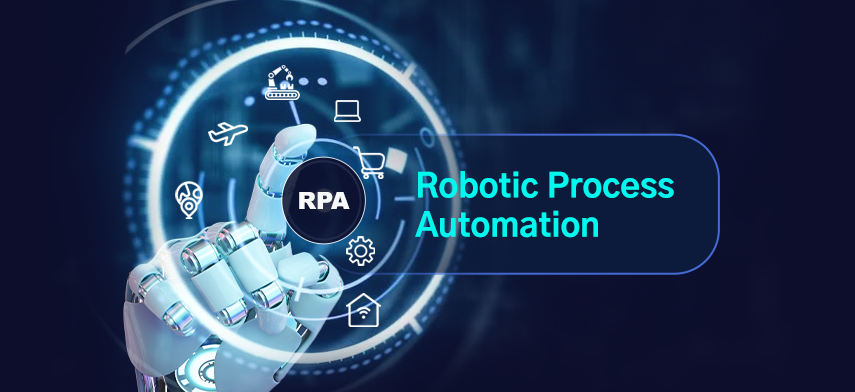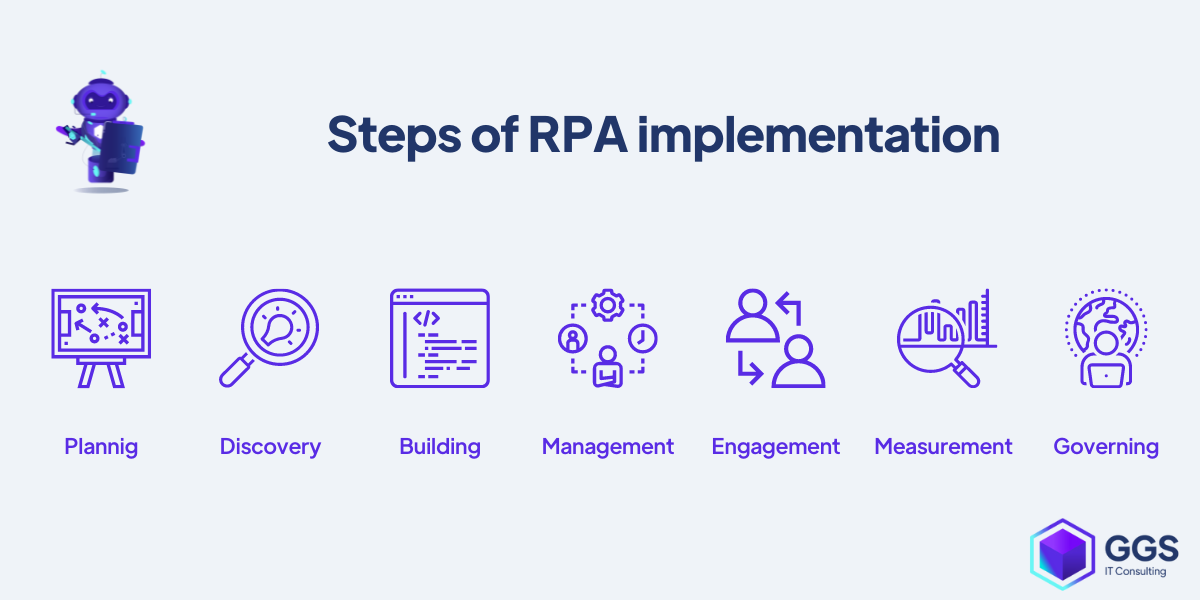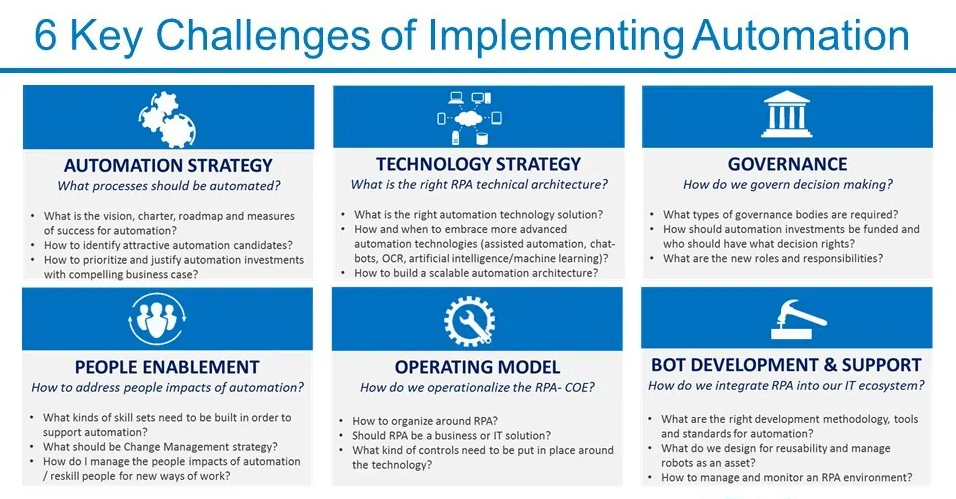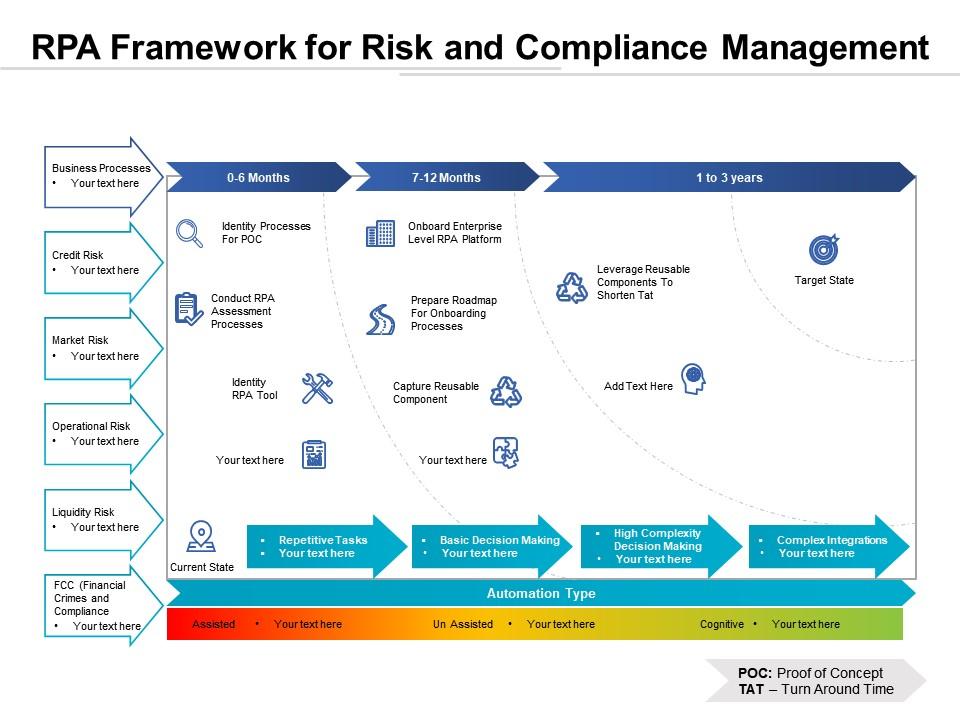Robotic Process Automation





Robotic Process Automation (RPA) has been making waves in the business world as companies embrace the benefits of automation. In recent years, RPA has been rapidly evolving and has become increasingly sophisticated, making it an even more valuable tool for businesses looking to streamline their operations and improve efficiency.

One of the most significant developments in the world of RPA has been the integration of Artificial Intelligence (AI) and Machine Learning (ML) technologies. By combining RPA with these advanced technologies, businesses can automate more complex processes and tasks that were previously too difficult for traditional RPA systems to handle. With AI and ML, RPA systems can learn and adapt to new tasks, improving their accuracy and efficiency over time.

Another significant development in RPA is the rise of cloud-based RPA solutions. These solutions offer businesses the ability to access RPA services through the cloud, reducing the need for on-premises infrastructure and making it easier to scale RPA deployments. Cloud-based RPA solutions also offer increased security and reliability, as well as the ability to access RPA services from anywhere in the world.One of the most exciting developments in RPA is the emergence of intelligent automation platforms. These platforms combine RPA, AI, and ML technologies to provide businesses with a comprehensive automation solution. Intelligent automation platforms can handle complex tasks such as natural language processing and decision-making, making them an invaluable tool for businesses looking to automate more of their operations.
The growth of RPA has also led to the development of new roles and job titles, such as RPA developers and RPA architects. These professionals are responsible for designing, developing, and implementing RPA solutions, as well as maintaining and improving them over time. As RPA becomes more widespread, the demand for these professionals is expected to increase, making it an excellent career choice for those interested in the field.Finally, as RPA continues to evolve, it is becoming more accessible to small and medium-sized businesses. While RPA was initially only accessible to large enterprises with significant IT resources, the rise of cloud-based solutions has made it more affordable and easier to deploy. This means that even small businesses can take advantage of the benefits of automation, improving their operations and competing with larger companies.
Another significant development in RPA is the expansion of its use cases. Initially, RPA was primarily used to automate repetitive and mundane tasks such as data entry, but now it is being used to automate a wide range of business processes across different industries. For example, RPA is being used in healthcare to automate administrative tasks such as patient registration and billing, and in finance to automate invoice processing and account reconciliations.
In addition to expanding its use cases, RPA is also being integrated with other technologies such as Business Process Management (BPM) and Customer Relationship Management (CRM) software. By integrating RPA with these technologies, businesses can automate end-to-end processes and provide a better customer experience. For example, RPA can be used to automate the order-to-cash process in a CRM system, allowing sales representatives to focus on more complex tasks such as building customer relationships.
RPA is also becoming more user-friendly, with many vendors offering drag-and-drop interfaces and visual process modeling tools. These tools make it easier for non-technical users to create and manage RPA workflows, reducing the need for IT resources and making RPA more accessible to business users.Finally, RPA is becoming more intelligent, with the ability to handle unstructured data such as emails and documents. This is made possible by Natural Language Processing (NLP) and Optical Character Recognition (OCR) technologies, which enable RPA to read and understand human language and extract data from scanned documents.
The developments in RPA are driving innovation and transformation across various industries, making it an essential tool for businesses looking to improve efficiency, reduce costs, and provide a better customer experience. As RPA continues to evolve, we can expect to see even more advanced features and use cases, making it an exciting time for the world of automation.
RezKon can play a crucial role in helping businesses successfully implement and maximize the benefits of RPA. Here are some ways that consulting companies can assist in RPA:






Industry-Specific Expertise: Consulting companies can provide businesses with industry-specific expertise in RPA implementation. This can include knowledge of industry-specific regulations, best practices, and standards, as well as experience with implementing RPA solutions in similar industries
In conclusion, the developments in RPA have been significant in recent years, and the technology continues to evolve at a rapid pace. With the integration of AI and ML technologies, the rise of cloud-based solutions, and the emergence of intelligent automation platforms, RPA is becoming an increasingly valuable tool for businesses of all sizes. As more companies embrace automation, the demand for RPA professionals is expected to grow, making it an exciting field for those interested in pursuing a career in technology.
In summary, RezKon can assist businesses in a wide range of areas related to RPA, including business process re-engineering, cost optimization, risk assessment and management, global delivery models, and industry-specific expertise. By partnering with a consulting company, businesses can leverage their expertise and experience to achieve maximum value from their RPA systems, while minimizing risks and ensuring compliance with regulations and best practices.